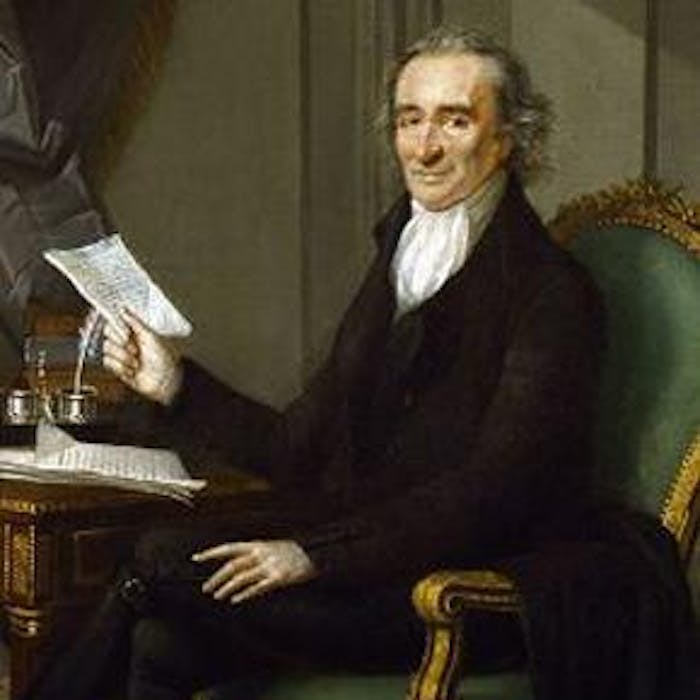
Thomas Paine - the Norfolk-born inspiration of American independence
Thomas Paine was a Norfolk-born political philosopher and writer who helped inspire American patriots declare independence from Britain in 1776. He is perhaps best known for his propagandist texts 'Common Sense' (1776) and 'The American Crisis' (1776–1783), the two most influential pamphlets at the start of the American Revolution.
Other works that contributed to Paine's reputation as a great political theorist were Rights of Man, a defence of the French Revolution and of republican principles, and The Age of Reason, an exposition of the place of religion in society.
Paine was born in Thetford, Norfolk in 1737, and attended Thetford Grammar School, before being apprenticed to his father - a corset maker. Following his apprenticeship, Paine enlisted and briefly served as a privateer seaman, and, returning to Britain in 1759, became a master staymaker in the corset business. He established his own shop in Sandwich, Kent.
After marrying Mary Lambert in 1759 - who died in childbirth shortly after - his business collapsed, and Paine pursued several jobs in which he was unhappy or unsuccessful. These include a supernumerary revenue officer and an excise officer - from which he was dismissed for being absent without permission. He sold his household possessions to avoid debtors' prison, separated from his second wife and moved to London. It was here that he met Benjamin Franklin, who advised him to seek his fortune in America, and gave him letters of introduction.
Paine arrived in Philadelphia on November 30, 1774, where he helped found Pennsylvania Magazine, and edit it for 18 months. In addition Paine published numerous articles and some poetry, anonymously or under pseudonyms. One such article was “African Slavery in America,” a denunciation of the African slave trade.
Following the bloody Battles of Lexington and Concord, Paine argued that the cause of America should be a demand for independence, rather than a revolt against taxation. He expressed this in Common Sense, which was published in 1776, and which sold 500,000 copies within months. It is regarded as the single most influential publication paving the way for the Declaration of Independence, in the same year it came off the press.
In 1777 Paine was appointed secretary to the Committee for Foreign Affairs, a post which he held until 1779. He was then appointed clerk of the General Assembly of Pennsylvania, where he observed American troops' poor pay and scarcity of supplies, and he started a subscription for their relief. In 1781, pursuing the same goal, he accompanied John Laurens to France. The money, clothing, and ammunition they brought back with them were important to the final success of the Revolution.
At the end of the American Revolution, Paine found himself poverty-stricken. His patriotic writings had sold very well, but he had refused to accept any profits in order that cheap editions could be widely circulated. Pleading to Congress for assistance, Pennsylvania gave him a modest sum, and New York a farm in New Rochelle. Here Paine devoted his time to inventions, concentrating on an iron bridge without piers, and a smokeless candle.
Paine died on June 8, 1809, in New York City, and was buried on his property in New Rochelle. On his deathbed, his doctor asked him if he wished to accept Jesus Christ before passing. “I have no wish to believe on that subject,” Paine replied, before taking his final breath.
Further reading
Links to external websites are not maintained by Bite Sized Britain. They are provided to give users access to additional information. Bite Sized Britain is not responsible for the content of these external websites.
